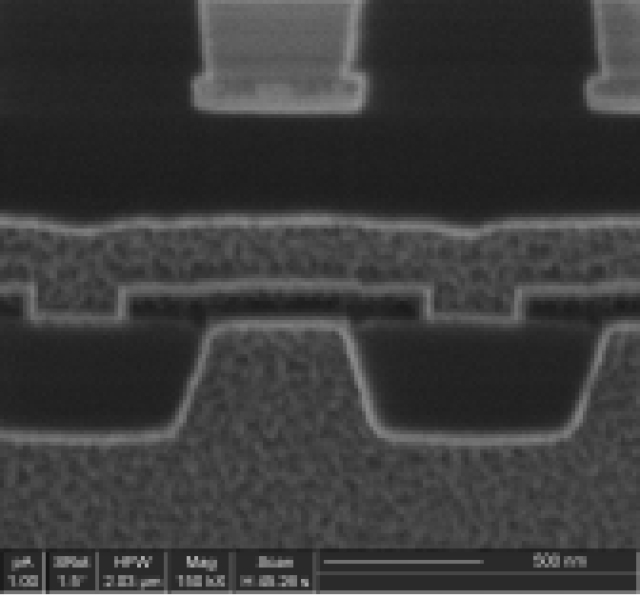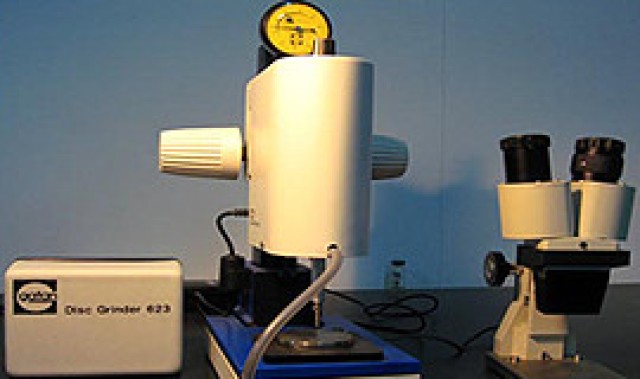
fib的正常值临床意义
- FIB量测
- 2024-03-21 21:58:22
- 2454
纳瑞科技(北京)有限公司(Ion Beam Technology Co.,Ltd.)成立于2006年,是由在聚焦离子束(扫描离子显微镜)应用技术领域有着多年经验的技术骨干创立而成。
Fibrosis is a pathological condition characterized by the activation of the fibrosis pathway in response to injury or damage in the body. It is a common condition that occurs in many diseases, such as cancer, heart disease, and autoimmune diseases. The fibrosis pathway is a complex series of events that lead to the activation of fibroblasts, which are cells that produce extracellular matrix (ECM) components such as collagen. The ECM components then help to recruit more fibroblasts, leading to a vicious cycle of fibrosis.

The normal value of fibrosis can vary depending on the specific disease or injury. In general, the level of fibrosis markers such as procollagen alpha-1 and procollagen alpha-2 in the blood can be used as a marker for fibrosis. These markers are released by the fibroblasts in response to injury or damage in the body. Therefore, the level of these markers can be used to assess the degree of fibrosis in a particular disease or injury.
In cancer, fibrosis is often present, and it can be used as a prognostic factor. Studies have shown that high levels of procollagen alpha-1 and procollagen alpha-2 in the blood are associated with poor prognosis in cancer patients. Furthermore, the level of these markers can also be used to monitor the effectiveness of cancer treatments, as treatments that target the fibrosis pathway have been shown to be effective in reducing the level of these markers and improving prognosis.
In heart disease, fibrosis is also commonly observed, and it can be used as a predictor of outcomes. Studies have shown that individuals with heart failure have higher levels of procollagen alpha-1 and procollagen alpha-2 in the blood compared to individuals without heart failure. Furthermore, the level of these markers has also been used to predict the outcomes of heart failure, with higher levels of procollagen alpha-1 and procollagen alpha-2 being associated with a greater risk of death.
In autoimmune diseases, fibrosis is often present, and it can be used as a measure of disease severity. The level of procollagen alpha-1 and procollagen alpha-2 in the blood can be used to assess the degree of fibrosis in autoimmune diseases such as rheumatoid arthritis. Studies have shown that individuals with rheumatoid arthritis have higher levels of procollagen alpha-1 and procollagen alpha-2 in the blood compared to individuals without rheumatoid arthritis.
In summary, fibrosis is a pathological condition that can be used as a marker for a variety of diseases and injuries. The level of fibrosis markers such as procollagen alpha-1 and procollagen alpha-2 in the blood can be used to assess the degree of fibrosis in a particular disease or injury. High levels of these markers are associated with poor prognosis in cancer and heart disease, but they can also be used to predict the outcomes of these diseases. Further research is needed to understand the role of fibrosis in the pathogenesis of these diseases and to develop effective treatments that target the fibrosis pathway.
fib的正常值临床意义 由纳瑞科技FIB量测栏目发布,感谢您对纳瑞科技的认可,以及对我们原创作品以及文章的青睐,非常欢迎各位朋友分享到个人网站或者朋友圈,但转载请说明文章出处“fib的正常值临床意义 ”









